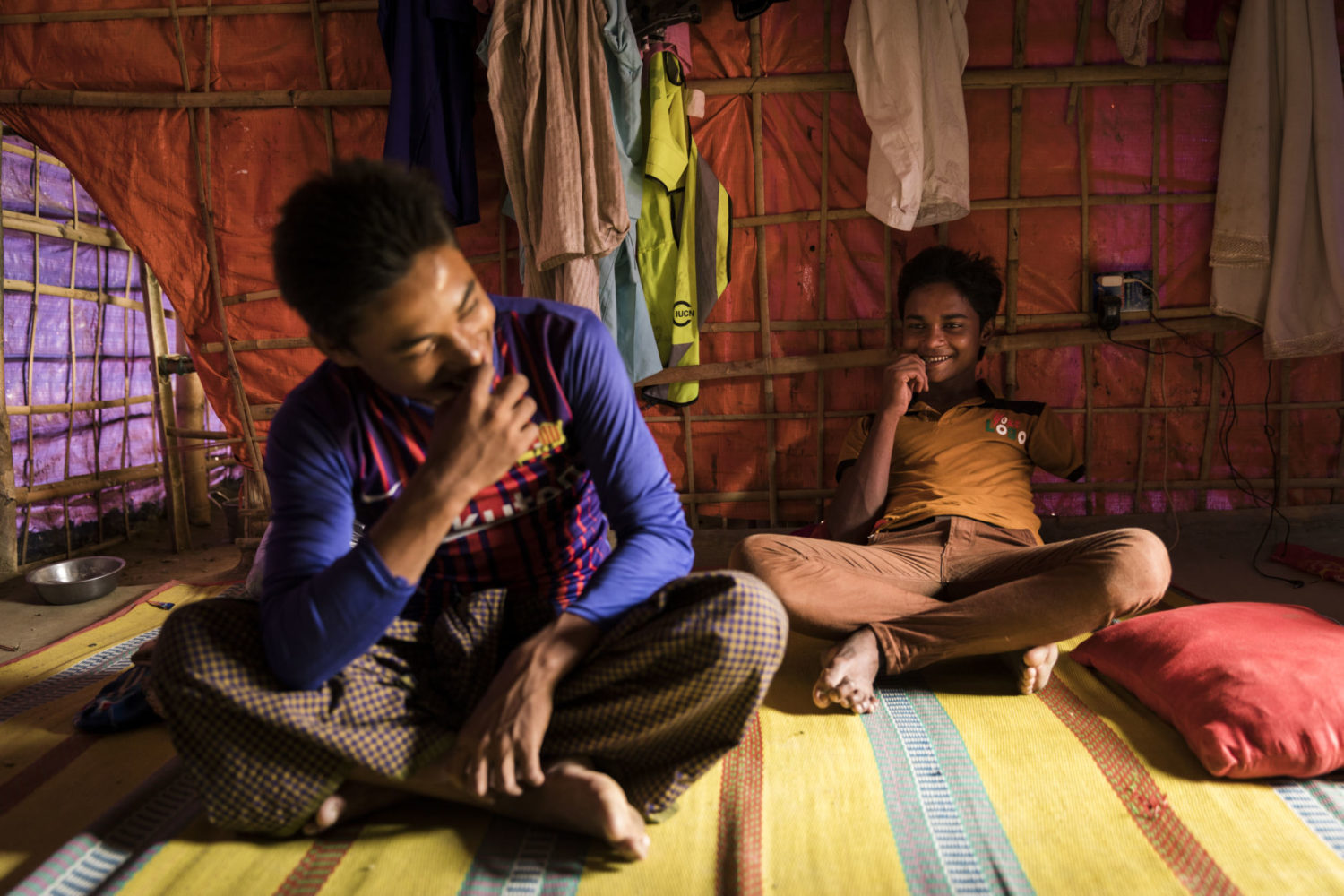10 December 2018 – The European Union has contributed over £542,000 to support UNICEF’s work to protect the rights of children affected by migration in Bangladesh.
The contribution will directly reach an estimated 12,000 children over the next three years who are migrating or have been forcibly displaced within their own countries or across borders. The programme is being implemented across multiple regions of UNICEF operations in Southeast, South and Central Asia and will also reach children affected by migration including children left behind by parents or caregivers who have migrated often in search of better economic opportunities to support their families. In Bangladesh, the project will focus on issues of internal and cross border migration of children including children who are at risk or survivors of trafficking. It is expected that many more children will benefit through policy changes that will strengthen child protection systems.
According to official estimates, there is evidence of Bangladeshi children and women been trafficked from Bangladesh to India. Bangladesh Government reported around 5000 of Bangladeshis who have been identified in 2014 and 2015 in India and the Middle East. Bangladesh is also hosting a large number of Rohingya population that entered into Bangladesh to escape from persecution by the Myanmar government in Rakhain state of Mayanmar.Since August 2017, 605,000 people have crossed the border into Bangladesh from Myanmar. As many as 60% of these are children. Many of these children have been separated from their parents and are at risk of trafficking. Internal migration of children is also very high in Bangladesh. Around 600, 000 street children are living in the street of which 380,000 are between the ages of 5 and 14.
“Poverty, physical or sexual abuse, and peer influence are the three major factors that push children to migrate from rural to urban areas and to further risk of trafficking. These children are deprived of essential services,” said Edouard Beigbeder, Representative, UNICEF Bangladesh. “UNICEF has always been there with its partners to ensure essential services to these most vulnerable children. Thanks to the European Union for this generous contribution, which will help to better protect children on the move.”
With EU’s contribution UNICEF will strengthen national child protection systems by training professionals and government authorities to identify, refer and assist vulnerable children affected by migration. This work includes ensuring children and families have access to social assistance, legal aid, psychosocial support, counselling and birth registration. Children will also be given access to health care and education.
UNICEF will work with authorities to ensure children are never placed in detention for migration-related reasons, and strengthen alternative care options, such as foster care and kinship care, for those who are deprived of parental care or are unaccompanied. The programme will help address issues related to child statelessness by enhancing policies and procedures, while establishing and strengthening systems for sharing information on family tracing and reunification across borders.
Ambassador and the Head of Delegation of the European Union to Bangladesh, Rensje Teerink said: “All children, regardless of their migration status, must be protected. We have to ensure their access to education, healthcare and sanitation, social and legal services, and psychological support. And this is what the EU is committed to do. In cooperation with partners like UNICEF, we help Bangladesh to strengthen its national child protection system – in order to ensure that no child is left behind.”
The new programme will also help gather data and evidence, from multiple regions where the project is being implemented, to better understand who and how many children are affected by migration, and develop information systems to monitor the services provided to them.
For more information, please contact:
Unicef UK Media Team, 0207 375 6030, [email protected]
Alexandra Murdoch, 0207 375 6179, [email protected]
About Unicef
Unicef is the world’s leading organisation for children, promoting the rights and wellbeing of every child, in everything we do. Together with our partners, we work in 190 countries and territories to translate that commitment into practical action, focusing special effort on reaching the most vulnerable and excluded children, to the benefit of all children, everywhere.
Unicef UK raises funds to protect children in danger, transform their lives and build a safer world for tomorrow’s children. As a registered charity we raise funds through donations from individuals, organisations and companies and we lobby and campaign to keep children safe. Unicef UK also runs programmes in schools, hospitals and with local authorities in the UK.
For more information please visit unicef.org.uk


